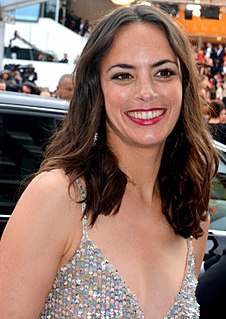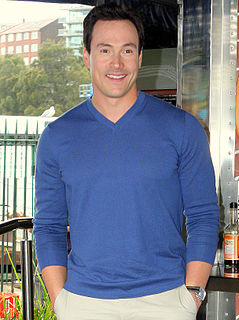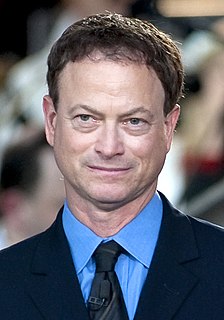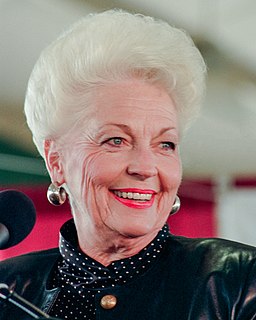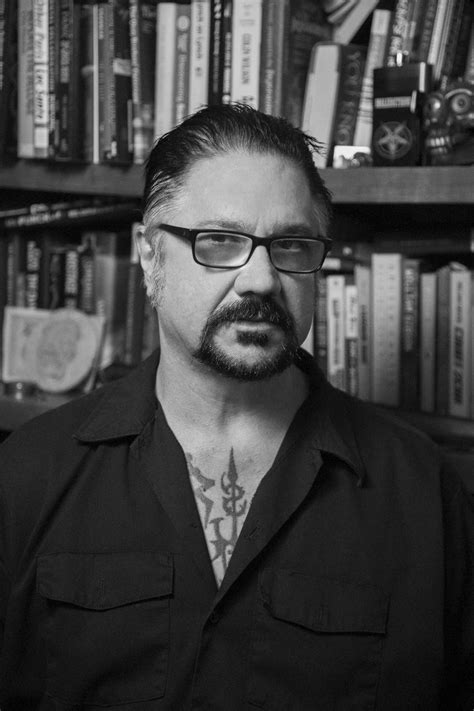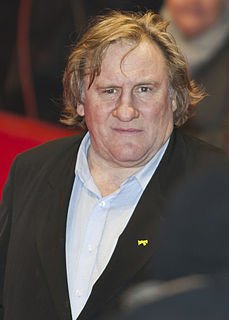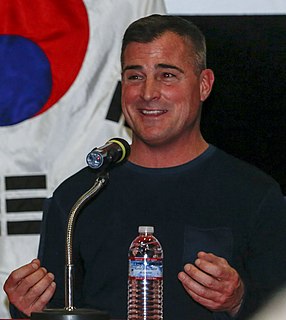A Quote by Berenice Bejo
For us, as actors, and even for the director, it gave us a sense of authenticity to what we were doing because we were talking about Hollywood and we were in Hollywood.
Related Quotes
The actors I was most impressed with and who were influencing my taste were all movie actors, so I always wanted to do movies but I didnt want to go to Hollywood and become a waiter in the meantime. The chances are really slim that an actor will be discovered in Hollywood. ... Ive never had to compromise myself for a job, ever.
I'm really glad that our young people missed the Depression and missed the great big war. But I do regret that they missed the leaders that I knew, leaders who told us when things were tough and that we'd have to sacrifice, and that these difficulties might last awhile. They didn't tell us things were hard for us because we were different, or isolated, or special interests. They brought us together and they gave us a sense of national purpose.
I was a young feminist in the '70s. Feminism saved my life. It gave me a life. But I saw how so much of what people were saying was not matching up with what they were doing. For example, we were talking about sister solidarity, and women were putting each other down. We were talking about standing up for our rights, and women weren't leaving abusive relationships with men. There were just so many disconnects.
This is where you first failed us. You gave us minds and told us not to think. You gave us curiosity and put a booby-trapped tree right in front of us. You gave us sex and told us not to do it. You played three-card monte with our souls from day one, and when we couldn't find the queen, you sent us to Hell to be tortured for eternity. That was your great plan for humanity? All you gave us here was daisies and fairy tales and you acted like that was enough. How were we supposed to resist evil when you didn't even tell us about it?
I doubt that there are many screenplays of movies that either of us have seen over the past 10 years that were first drafts, or were the work of purely one person. In my world, the actors and the director are all made of paper, and they do exactly what I say. I feel much more in control of the finished work. I feel like the statement that I'm making - even though it's in a medium by no means as glamorous or as widely recognized as film - is at least the statement that I wanted to make. That's a lot more important to me than the allure of working for Hollywood.
We were very effective, and I was very effective, in shaping public opinion around my campaigns. But there were big stretches, while governing, where even though we were doing the right thing, we weren't able to mobilize public opinion firmly enough behind us to weaken the resolve of the Republicans to stop opposing us or to cooperate with us. And there were times during my presidency where I lost the PR battle.
One of the ways the telegraph changed us as humans was it gave us a new sense of what time it is. It gave us an understanding of simultaneity. It gave us the ability to synchronize clocks from one place to another. It made it possible for the world to have standard time and time zones and then Daylight Savings Time and then after that jetlag. All of that is due to the telegraph because, before that, the time was whatever it was wherever you were.
Go back to the Bible, the Old Testament. I mean there were people who we would call intelectuals, there, they were called prophets, but they were basically intelectuals: they were people who were doing critical, geopolitical analysis, talking about the decisions of the king were going to lead to destruction; condemning inmorality, calling for justice for widows and orphans. What we would call dissident intelectuals. Were they nicely treated? No, they were driven into the desert, they were imprisoned, they were denounced. They were intelectuals who conformed.
I think we did our first session in 1958. There were no black background singers - there were only white singers. They weren't even called background singers; they were just called singers. I don't know who gave us the name 'background singers,' but I think that came about when The Blossoms started doing background.
